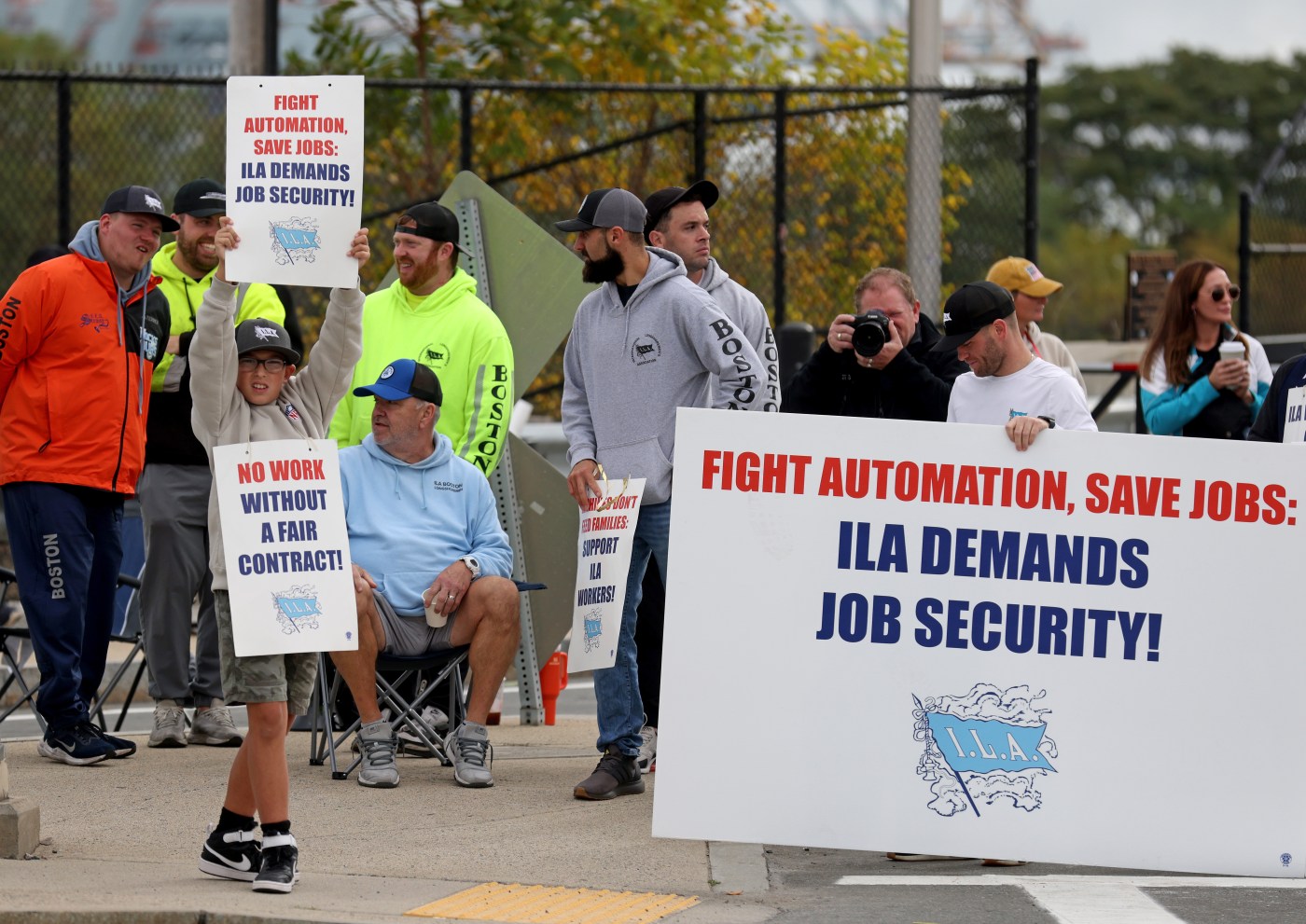
US port strike hits Boston: Conley Container Terminal closed, exact impacts unknown
The Conley Container Terminal in South Boston has shut down until “further notice,” with dockworkers joining a nationwide strike that has closed 36 U.S. ports from Maine to Texas.
It’s too early to say just how much of an impact the closed terminal and Port of Boston will have on the region’s industries and economies, said Jon Hurst, president of the Retail Association of Massachusetts.
“For each day there is a strike and the ports are closed estimates are it takes about three to five days to recover,” Hurst told the Herald Tuesday. “The costs are just enormous. It’s been estimated that the cost to the economy is $4.5 billion per day.”
Dockworkers at the affected ports began walking picket lines early Tuesday in a strike over wages and automation that could reignite inflation and cause shortages of goods if it goes on more than a few weeks.
The contract between the ports and about 45,000 members of the International Longshoremen’s Association expired at midnight, and even though progress was reported in talks on Monday, the workers went on strike. The strike is the first by the union since 1977.
Dozens of dockworkers gathered on a blocked-off road that leads to the Conley Container Terminal in Southie throughout the day Tuesday, holding signs with various messages including “ILA workers over machines: Defend our jobs,” and “Profit over people is unacceptable.”
The terminal and port “play a pivotal role in the economy of Massachusetts supporting 66,000 jobs and generating more than $8 billion annually,” Massport spokesperson Jennifer Mehigan said in a statement.
More than 2,500 local businesses rely on the port to “compete in the global marketplace with services that reach 40 ports” across the world,” Mehigan said. Longshoremen in Boston move more than 250,000 containers a year with truck turn times averaging less than 30 minutes, she added.
The U.S. Maritime Alliance, the group negotiating for the ports, said both sides did budge from their initial positions. The alliance offered 50% raises over the six-year life of the contract. Comments from the union’s leadership had briefly suggested a move to 61.5%, but the union has since signaled that it’s sticking with its initial demand for a 77% pay increase over six years.
“Everyone knew that this was a possibility,” Hurst said of the strike.
If drawn out, the strike will force businesses to pay shippers for delays and cause some goods to arrive late for peak holiday shopping season. It could snarl exports from East Coast ports and create traffic jams at ports on the West Coast.
The Associated Press contributed this report

